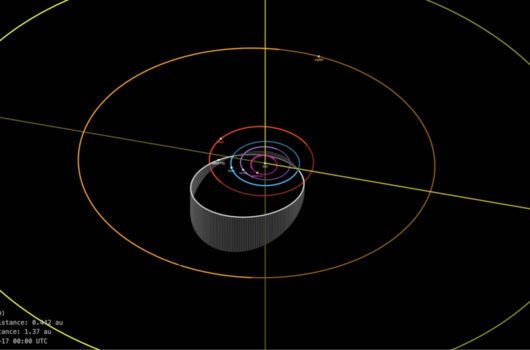Collective neutrino oscillations and heavy-element nucleosynthesis in supernovae: exploring potential effects of many-body neutrino correlations
Collective neutrino oscillations and heavy-element nucleosynthesis in supernovae: exploring potential effects of many-body neutrino correlations
View
Abstract
In high-energy astrophysical processes involving compact objects, such as core-collapse supernovae or binary neutron star mergers, neutrinos play an important role in the synthesis of nuclides. Neutrinos in these environments can experience collective flavor oscillations driven by neutrino-neutrino interactions, including coherent forward scattering and incoherent (collisional) effects. Recently, there has been interest in exploring potential novel behaviors in collective oscillations of neutrinos by going beyond the one-particle effective or “mean-field” treatments. Here, we seek to explore implications of collective neutrino oscillations, in the mean-field treatment and beyond, for the nucleosynthesis yields in supernova environments with different astrophysical conditions and neutrino inputs. We find that collective oscillations can impact the operation of the {\nu}p-process and r-process nucleosynthesis in supernovae. The potential impact is particularly strong in high-entropy, proton-rich conditions, where we find that neutrino interactions can nudge an initial {\nu}p process neutron rich, resulting in a unique combination of proton-rich low-mass nuclei as well as neutron-rich high-mass nuclei. We describe this neutrino-induced neutron capture process as the “{\nu}i process”. In addition, nontrivial quantum correlations among neutrinos, if present significantly, could lead to different nuclide yields compared to the corresponding mean-field oscillation treatments, by virtue of modifying the evolution of the relevant one-body neutrino observables.







